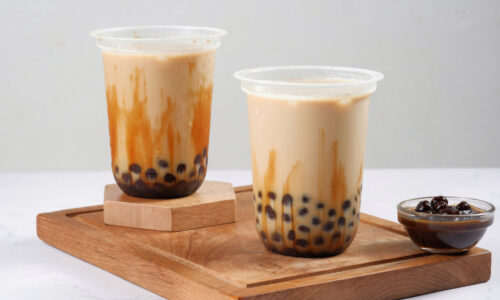Milk tea, also known as bubble tea, has become a popular drink worldwide in recent years. This sweet, creamy, and refreshing beverage is typically made with tea, milk, and a variety of add-ins such as tapioca pearls, fruit jelly, and sweeteners. However, while milk tea can be a delicious treat, it is important to be aware of its potential side effects and the health risks it may pose. In this article, we will explore 9 health risks associated with drinking milk tea.
High Caffeine Content
Many types of milk tea contain high levels of caffeine. The average cup of tea contains around 14-60 mg of caffeine, while a cup of coffee can contain up to 100 mg. However, some milk tea drinks can contain up to 200 mg of caffeine. Consuming high levels of caffeine can lead to a number of side effects, including jitteriness, nervousness, insomnia, and increased heart rate. It is important to be aware of the caffeine content of your milk tea and to consume it in moderation.
High Sugar Content
Many milk tea drinks are also high in sugar. A single cup of milk tea can contain as much as 50 grams of sugar or more. Consuming high levels of sugar can lead to weight gain, diabetes, and other health problems. It is important to be mindful of the sugar content of your milk tea and to limit your consumption.
High Calorie Content
In addition to being high in sugar, many milk tea drinks are also high in calories. A single cup of milk tea can contain as much as 400-500 calories or more. Consuming high levels of calories can lead to weight gain and other health problems. It is important to be aware of the calorie content of your milk tea and to limit your consumption.
Artificial Sweeteners
Many milk tea drinks are sweetened with artificial sweeteners, such as aspartame and sucralose. These sweeteners have been linked to a number of health problems, including cancer, headaches, and weight gain. It is important to be aware of the sweeteners used in your milk tea and to limit your consumption of drinks that contain artificial sweeteners.
High Sodium Content
Many milk tea drinks are also high in sodium. A single cup of milk tea can contain as much as 200-300 mg of sodium or more. Consuming high levels of sodium can lead to high blood pressure and other health problems. It is important to be aware of the sodium content of your milk tea and to limit your consumption.
Artificial Flavors and Colors
Many milk tea drinks contain artificial flavors and colors. These ingredients have been linked to a number of health problems, including cancer, allergies, and behavioral issues in children. It is important to be aware of the artificial flavors and colors used in your milk tea and to limit your consumption of drinks that contain these ingredients.
Tapioca Pearls
Many milk tea drinks contain tapioca pearls, which are made from the root of the cassava plant. These pearls have been linked to a number of health problems, including cancer and kidney problems. It is important to be aware of the tapioca pearls used in your milk tea and to limit your consumption of drinks that contain these pearls.
Milk
Many milk tea drinks contain milk, which is a common allergen. Consuming milk can lead to a number of allergic reactions, including hives, difficulty breathing, and anaphylaxis. It is important to be aware of the milk used in your milk tea and to limit your consumption of drinks that contain milk if you have a milk allergy.


